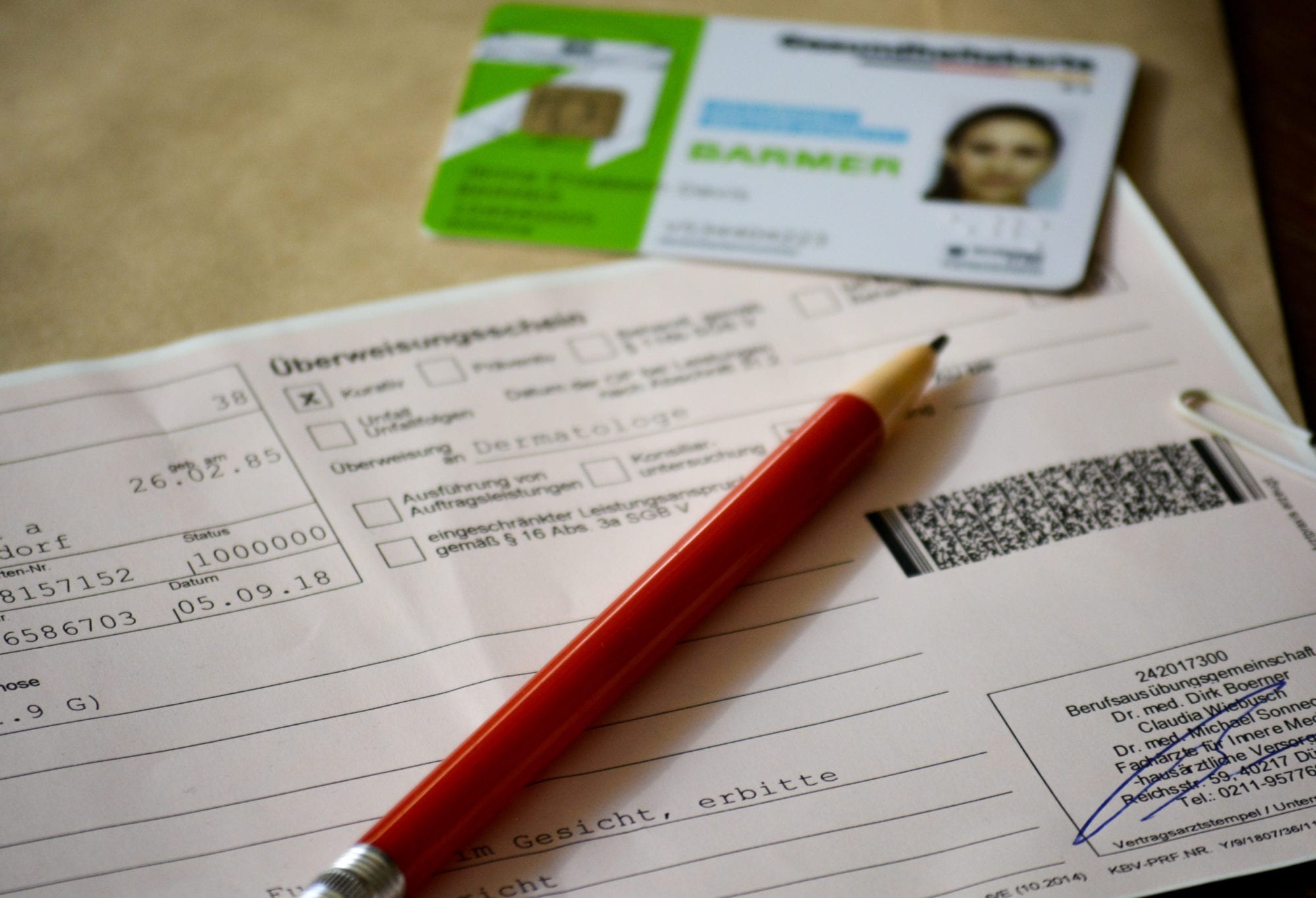Our blog posts may include affiliate links. These affiliate links don't cost you anything, but we might earn a few Euros if you decide to purchase something from one of our recommended website partners. Thank you for your support to help keep this platform up and running!
No matter where in the world you’re from, if you plan on living and working in Germany you’ll need to pay German taxes.
If you’ve come here for a job and plan on working “traditionally,” most companies will provide you with a tax advisor for the first one to two years.
But then what?
You’ll eventually need to do your taxes by yourself or you can hire an accountant in Germany who specializes in expat taxes.
Daniel Schmaltz, tax consultant at Schmaltz und Partner in Düsseldorf has graciously offered his tips to…
Filing taxes in Germany, here’s what you need to know…
If you’re an expat employed by a German company
You’ll generally only need to work with a tax advisor once per year to do your income tax return. This is called Einkommensteuererklärung. In the United States, this is equivalent to your 1040.
The German tax deadline for your private tax return is December 31st.
The best time of year to hire an accountant is in March or April of any given year. That will give you plenty of time to have your taxes done by October or November.
If you are not filing your taxes with a tax advisor, your deadline will be in May. (Germany essentially “rewards” people for hiring tax advisors by giving them an extension.)
When your accountant prepares your tax return, they’ll ask you for a list of about 20-25 possible documents you’ll need to have ready. For example, the most popular form will be the Lohnsteuerbescheinigung. This is the form you’ll receive from your employer listing all income received that year.
Other forms may include your insurance information or evidence of any donations (these are tax deductible).
If you’re self-employed
If you are self-employed or plan on starting a business in Germany, things get more complicated.
You’ll want to hire an accountant right away because they can not only help you fulfill all your tax and social security obligations (and do it right the first time) but also help you register as a business owner. This involves going to your local Finanzamt (your local equivalent of the IRS), but also may include a trip to your local trade office (Gewerbeamt) or notary (Notar). The exact steps will depend on your business, which is why you should consider hiring an accountant right away. Two taxes are most important: VAT and income tax.
Your tax advisor will also prepare your monthly VAT return, which includes handing in your monthly financial statements at the Finanzamt.
Within your first year of living in Germany, you’ll have to pay your income tax all at once at the end of the year. After that, you’ll pay every three months.
How to hire an expat accountant in Germany
There are higher costs of hiring an expat accountant opposed to doing your taxes online on your own, but it’s usually worth the investment due to reduced stress and helps to avoid extra financial burdens. Plus, normal people don’t like dealing with taxes in their native language, never mind in a foreign country famous for bureaucracy in a language you don’t understand.
The earlier you find an accountant, the better. They can help you understand the things you can do now to save money in the future.
Step 1: Find an English-speaking accountant
Unfortunately, this is often easier said than done. Most of the big companies have English speakers, but they’re often more expensive and less personalized.
If you want to hire a smaller, more family-run business you’ll need to pick up the phone and do some research on their language skills.
Some local accountancy websites will have a “translation” option where you can translate the whole website into English. If this is the case, they’re usually trying to attract English-speakers and you’ll likely have better luck talking to someone there.
When in doubt, shoot them an email and ask.
Step 2: Set up an introductory appointment
Unless you have the simplest financial set up known to man, you’re going to want to meet with your potential accountant in person. These meetings are almost always free. Don’t be shy, and set up a few appointments to see who you like best.
At my company, when you come into our offices I learn a bit more about your employment and financial situation. If it’s simple, bring in any payroll documents. That way I can usually give you an estimate on how much you’re likely to get back and how much it will cost to file your tax forms through our office.
Depending on the complexity of your taxes, we can also do this over email.
If you’re self-employed, we’ll definitely need to meet in person as filing your taxes in Germany gets a little more complicated when you run your own business, freelance or otherwise.
Bookkeeper or Accountant?
In a nutshell, bookkeepers (Buchhalter) record your business transactions. Accountants (Steuerberater) prepare and file those transactions with the government.
In Germany, titles like “bookkeeper” and “accountant” are strictly regulated. For example, as an accountant, I’m allowed to prepare financial statements and tax returns. A bookkeeper is not.
The first step in any financial advisor relationship is your bookkeeping, though this almost always applies only to those who are self-employed. If, for example, you own a store and sell 40 pairs of jeans every day, you probably won’t want to record every single one of those thousand monthly transactions. That’s when you hire a bookkeeper or an accountant.
However, if you’re a website designer and only have 2-3 clients each month, you might only spend 10 minutes recording those transactions and won’t need a bookkeeper.
Either way, once the bookkeeping is done you’ll need to prepare your financial statements in order to pay your taxes. That’s where an accountant comes in. We take all your invoices and payments for the year (or month, depending on the situation) and help you file those with the government. Unless you speak German, you’ll want to hire an accountant to help you with this so as to avoid any mistakes.
While bookkeepers are generally cheaper than accountants, they can’t do the same level of work. That said, most good accountants will also offer bookkeeping services so if you need both, ask.
If you have any questions about paying taxes in Germany, email Daniel at [email protected].
Do you have more questions about taxes in Germany? Check out some more of our posts regarding understanding your fixed assets, claiming child expenses in your annual income, how to obtain your tax number, how to file your taxes as a freelancer, what expenses you can deduct as an employee, and more!
New to Germany? Join our Welcome Program! Want to join our author team? Send us an email! Join our Life in Düsseldorf | Expats & Locals Community group and register for our newsletter (packed with the hottest events, seasonal activities, upcoming job opportunities and more)!





![15 of The Best [Expat Recommended] Birth Preparation Courses in Düsseldorf](https://www.lifeinduesseldorf.com/wp-content/uploads/2018/07/Birth-Preparation-Courses-Dusseldorf.jpg)








Dear Sir,
I am a UK Citizen, I have my own UK Limited company. I provide specialist aviation services. I am currently carrying out the second year of a two year contract with a German company in Mulheim an der Ruhr.
The first year was straight forward I paid all my taxes in the UK and worked freely in Europe. Now after Brexit things have become more difficult.
Consequently I have now completed an AUFENTHALTSBESCHEINIGUNG form. This was done on the 31/12/20, the day before BREXIT. I then completed this process when I started work on the 23/4/21.
This process was completed after advice from the German company I work for.
Now I have completed a Gew A1 form. But I have not sent it to the local authorities as I do not understand what will happen next.
Obviously, I am concerned about where and how much tax I will pay and my legal status in Germany.
I would like to discuss these matters with you before I continue with the administrative process.
I trust you can help.
Kind Regards
Captain Mark Finney
+44 7771 848928
Hey there! I would suggest reaching out to Mr. Schmaltz personally. Here is their website: https://www.schmaltzundpartner.de/
Best of luck!
– Jenna